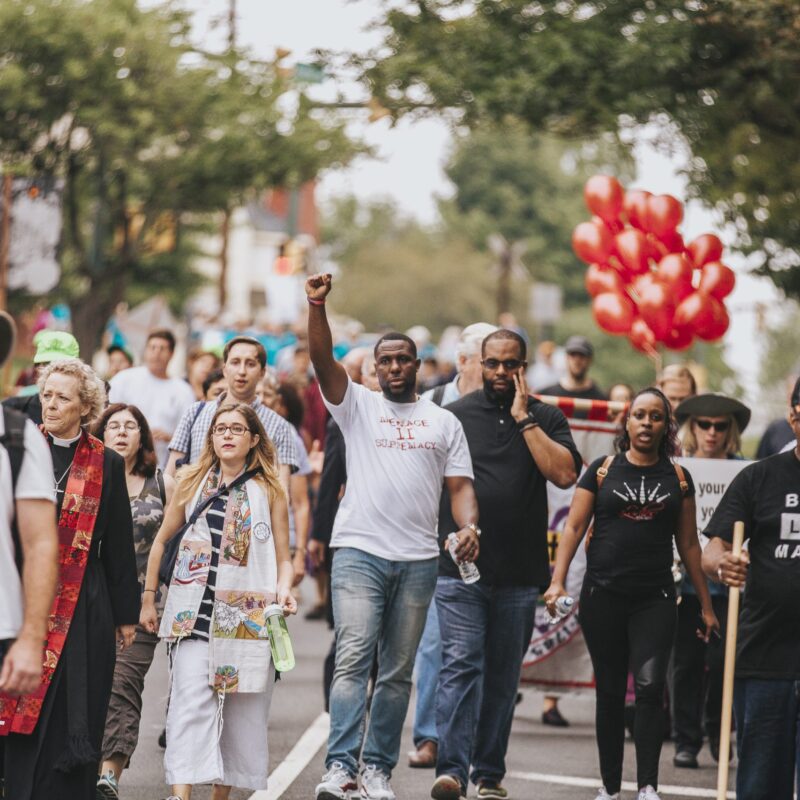|
(Top, left to right) John Douglass, Robert Hurt, George Allen. (Center) Tim Kaine. (Bottom) Bob Marshall, Jamie Radtke, E.W. Jackson. (Photos courtesy of candidates) |
With the Democrats’ Fifth Congressional District caucuses wrapped up and the first debate before the Republican Senate primary out of the way, we’re staring down a long summer of campaign rhetoric. UVA’s Center for Politics’ Geoff Skelley is keeping an eye on the U.S. Senate and Fifth District House race—both of which are getting national attention as the country shoulders into the next phase of the seemingly endless ramp-up to election season.
The Democratic nominee to face Republican incumbent Robert Hurt for the Fifth District seat in the House of Representatives won’t be finalized until next month, but now that Peyton R. Williams Jr. has taken himself out of the running, retired Air Force Brigadier General John Douglass, who took the majority of caucus delegates, is the sole candidate going into the party convention.
Can Douglass turn the Fifth blue again? Probably not, said Skelley.
Tom Perriello’s surprise 2008 victory was tied to a strong showing for Obama, he said, and most observers expect Hurt to keep his seat.
Still, he said, “the dynamics of the district aren’t super safe.”
In order to mount a political comeback and beat fellow former governor Tim Kaine in the closely watched Senate race, George Allen will have to beat a trio of Republican hopefuls: Tea Party organizer Jamie Radtke, minister E.W. Jackson, and outspoken abortion opponent Bob Marshall. Few see them as real threats to Allen, Skelley said.
Presidential politics will likely drive the race, he said. Virginia almost unfailingly pushes back against the party in the White House in midterm elections, Skelley noted, but in a presidential year, people tend to vote down the ballot.
“There’s just not a lot of cross-over,” he said.—Graelyn Brashear
Fifth District
John Douglass (D)
A Florida native who now lives in northern Fauquier County, Douglass rose to the rank of Brigadier General in the Air Force before retiring in 1992. Assistant Secretary of the Navy for Research under Clinton, he also served as CEO of the Aerospace Industries Association, a massive defense-spending lobbying organization. His opponent for the Fifth District Democratic nomination, Peyton Williams, hasn’t conceded defeat, but Douglass is expected to carry the majority of the delegates at the distric’s Democratic convention in Nelson County May 19. He’s played up his experience working with presidents while presenting himself as the best candidate to beat Hurt.
Robert Hurt (R)
Hurt, an attorney originally from New York, has steadily climbed through the Virginia political ranks the old-school way: Chatham Town Council, General Assembly, State Senate. In 2010, he moved to the national stage when he grabbed Tom Perriello’s House seat. While in office, he voted to repeal the Affordable Care Act and pushed for major cuts in the federal budget. He cites job creation and lowering gas prices as key issues.
U.S. Senate
Tim Kaine (D)
A Harvard Law grad from Minnesota, Kaine served as Virginia governor from 2006 to 2010. He served as Chairman of the Democratic National Committee from 2009 to 2011, and has maintained close ties to the Obama administration through Organizing for America, the President’s grassroots political operation. Unopposed in his bid for the Democratic nomination for Senate, Kaine wants to see Bush-era tax cuts for the wealthy expire and has blasted Allen for supporting oil company subsidies.
George Allen (R)
After serving as governor from 1994 to 1998 and being elected to the Senate in 2000, Allen was considered a rising GOP star and a possible 2008 presidential candidate until his “macaca moment” and loss to Jim Webb in the 2006 Senate race. Since then, he’s been pursuing candidate-friendly endeavors—running a conservative think tank and penning a book. Ahead of the Republican primary, Allen’s playing up his social conserva-
tism and underscoring Kaine’s ties to Obama.
Bob Marshall (R)
An 11-time Virginia Delegate from Prince William County, Marshall narrowly lost the Republican Senate nomination in 2008 to former governor Jim Gilmore. He leans hard to the right, especially on social issues—he supported Virginia’s controversial ultrasound bill, and has spoken in favor of banning some kinds of contraception and all abortion, even in cases of rape and incest. Marshall has gone up against Kaine in his own way in the past: He personally—and successfully—sued to block a Kaine-backed 2007 bill that imposed taxes to fund Northern Virginia road projects.
Jamie Radtke (R)
A Richmond resident and graduate of Liberty University, Radtke is a conservative political consultant turned Tea Party activist who’s playing up her outsider status. She announced her intention to run against Allen early, and has since offered up a steady stream of anti-Republican-establishment op-eds in state newspapers. She’s pushing for Washington to cut its way to a balanced budget, and has vowed to oppose the federal debt ceiling.
E.W. Jackson (R)
Another graduate of Harvard Law, Jackson studied to be a Baptist minister before founding his own nondenominational Christian church. Aligning himself with Virginia’s Tea Partiers, Jackson has railed against the Obama administration on conservative talk shows and his own radio show. He’s named repealing the health care bill and “protecting Judeo-Christian values” as top priorities.
/candidates.jpg)





